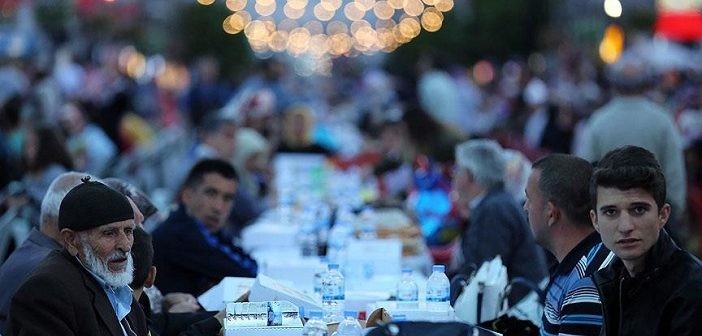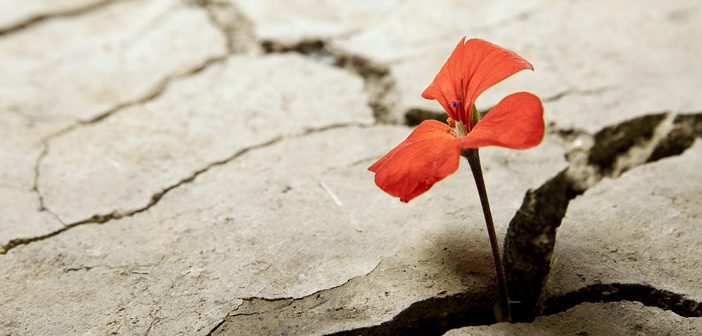
Teaching The Acts of Worship
How to learn worship acts? What are the basic acts of worship in islam?
“Enjoin prayer on thy people, and be constant therein…” (Taha 20; 132)
Acts of worship shows servitude, obedience, and submission. They regulate all actions, behavior, and words according to the measures of the Creator. According to this definition all good deeds have the attribute of worship. However, we will examine this issue within the limits of certain types of worship, i.e. ritual prayer, fasting, and pilgrimage.
Acts of worship must be performed only for Allah. This is stated in the following verse:
“And they have been commanded no more than this: to worship Allah, offering Him sincere devotion, being true (in faith); to establish regular prayer; and to practice regular charity; and that is the religion right and straight.” (al-Bayyina 98; 5)
Allah the Almighty has created His servants in a way that they feel peace and comfort in worship. In order to pursue a balanced life people should have a tranquil heart. The more a person gets closer to Allah the more tranquility of his heart increases. Learning how to worship Allah can be achieved through a planned education.
The education of worship should begin at a young age, during when both acts of worship and their positive results can settle in the soul in a natural and healthy way; for every teaching given to a child is like a script inscribed on marble.
Giving a child education about Islamic worship is an important task especially for those who have brought him/her into this world. In this context Islam holds the father primarily responsible. This is expressed in a verse as follows:
“O you who believe! Save yourselves and your families from a fire whose fuel is men and stones…” (al-Tahrim 66; 6)
Muslim exegetes, who interpret this verse, say that father or the head of a household is primarily responsible for the supervision and religious education of his family members. (Qurtubi, XVIII, 95; Razi, XXX, 41)
Even though Allah’s Messenger (pbuh) emphasized the responsibility of the father, he also pointed out a mother’s share in this responsibility in his following saying: “Beware. Every one of you is a shepherd and everyone is answerable with regard to his flock…A man is a guardian over the members of his family and shall be questioned about them (as to how he looked after their physical and moral well-being). A woman is a guardian over the household of her husband and his children and shall be questioned about them…” (Bukhari, Wasaya, 9; Muslim, Imara, 20) Of course, raising and caring for children is amongst the mothers’ tasks.
The education of worship (religious education) should begin with teaching the principles of ritual prayer which is the pillar of Islam. Those who would like to give their children the correct education of prayer should themselves first present exemplary behavior and begin to perform their five daily prayers. This issue is pointed out in the Qur’an stating: “Enjoin prayer on your people, and be constant therein…” (Taha 20; 132)
According to the recommendations of the Prophet (pbuh), seven is the age for children to begin prayer. Although a child who is raised in a religiously practicing family was accustomed to prayer beginning the day he was born. This beautiful act of worship attracts his attention and so he begins to imitate his elders and tries to perform his prayers. Thus, the parents’ task becomes just to correct their childrens’ mistakes. The necessary information about the principles of prayer and its significance should be given to the children who do not know how to pray by the age of seven and some short chapters of the Qur’an should be taught to them. In the education of worship one should approach a child by taking his personal characteristics and psychological state into consideration. One should remember that they are not responsible until the age of puberty based on the saying of the Prophet (pbuh): “Children are not responsible until the age of puberty …” (Tirmidhi, Hudud, 1) Prophet’s practice in this regard serves as our guide.
Allah’s Messenger (pbuh) told Anas (r.a.) who was in the Prophet’s service since a young age:
“Dear son! Avoid looking around during your prayer, for this removes the excellence of your prayer. If you cannot help yourself but to look around, then at least do not do this during obligatory prayers.” (Tirmidhi, Jum’a, 60)
Ummu Salama (r. anha) narrates:
“Allah’s Messenger (pbuh) saw our little servant named Aflah praying. When he went to prostration, he was puffing out (not to get dust on his forehead.) Allah’s Messenger (pbuh) told him:
“O Aflah! Place your face on the earth.” (Tirmidhi, Salat, 163)
On the other hand, children should be allowed to come close to and watch their elders praying at home or in the mosque. Jabir b. Samura (r.a.) talks about his childhood and his memories with the Messenger of Allah (pbuh) as follows:
“I performed the noon prayer with the Messenger of Allah (pbuh) and then he went out to go to his family. I also went out with him. He met some children on his way. He began to pat their cheeks one by one. When it was my turn, he patted my cheeks, too. I felt a pleasant chill and fragrance on his hands. It was like he had taken his hands off an herbalist’s basket.” (Muslim, Fadail, 80)
It was narrated by Ibn Abbas (r. anhuma):
“I stayed overnight in the house of my aunt Maimuna bint Al-Harith (the wife of the Prophet) while the Prophet was there with her at night during her turn. The Prophet led the night prayer in the mosque, returned home and after having performed four cycles of prayer, he slept. Later on he got up at night and then said the boy (referring to me) had slept. Then he got up for the prayer and I stood up by his left side but he made me stand to his right and offered five cycles of prayer followed by two more cycles. Then he slept … and after a while he left for the dawn prayer.” (Bukhari, Ilm, 41)
Again we see in the reports that when Ibn Abbas (r. anhuma) was a child, he performed funeral and festival (’eid) prayers together with the Messenger of Allah (pbuh). (Bukhari, Janaiz, 60; I’dain, 16)
In the traditions of the Messenger of Allah (pbuh) we also see in which row of the congregation children should perform their prayers. According to these traditions men should pray in the first rows, boys stand in the following rows and girls and women stand in the final rows. The Prophet (pbuh) also advised old and mature people to stand in the first rows, telling his followers not to break the order among the rows. (Muslim, Salat, 132, 123)
Ibn Abbas (r. anhuma), who had the honor of praying with the Messenger of Allah (pbuh) in his childhood, said that:
“I was praying next to the Messenger of Allah (pbuh). Aisha (r. anha) was praying behind us.” (Ibn Huzaimah, III, 18)
Anas bin Malik (r.a.) said that:
“One night an orphan and I offered prayers behind the Prophet in my house and my mother, Umm Sulaim, was standing behind us offering prayers.” (Bukhari, Adhan, 78)
Today, another remarkable point which needs to be mentioned about the children’s religious education is this: Adults show an excessive reaction to children’s actions in the mosques which causes them to be alienated from worship and the mosques. Thinking about this danger we should be more tolerant towards our kids. Our Prophet’s practices should be our guide in this matter. He led a congregational prayer in the mosque while his granddaughter Umamah was on his shoulders. Abu Qatadah (r.a.), who narrated this incident, said that the Messenger of Allah (pbuh) was putting his granddaughter down when he bowed down and he took her up when he got up after prostration. (Bukhari, Adab, 18; Muslim, Masajid, 41-43)
In addition to education about ritual prayer, education about fasting is also very important in having our children achieve a religious consciousness. It is very important to make our children benefit from the spiritual atmosphere of our tables at the times of beginning and breaking our fast. Through fasting child gains sincerity and comprehend the omnipresence of the Divine Will. Despite his hunger and thirst, by staying away from food and drinks, a child also strengthens his self-control.
One should pay attention to gradualism when encouraging children to fast. In accordance with the level of their religious progress they should be told about the significance of seriousness in worship and they should be encouraged to fast the whole day but they should not be forced to do so. They may even be rewarded as an encouragement to fast. The Companions paid attention to these principles when educating their children. For instance, we observe in the sources that some Companions gave toys to their children to keep them busy until it was time to break their fast. Rubayyi bint Muawwiz (r. anha), a female Companion, narrated that:
“…We used to fast on the day of Ashura regularly and also have our children fast. We used to make toys of wool for them and if anyone of them cried for food, he was given the toys till it was time to break the fast.” (Bukhari, Sawm, 47; Muslim, Siyam, 136)
Imam Bukhari allocated a section in his Sahih under the title of “children’s fasting” and in that section he reported that Umar (r.a.) had said to a person who got drunk in Ramadan:
“Shame on you! Even our children fast.” (Bukhari, Sawm, 47)
In addition to teaching ritual prayer and fasting, it is praiseworthy to take children to pilgrimage and warm their hearts up to its religious ceremonies. Allah’s Messenger (pbuh) said that:
“Minor and major pilgrimage are jihad for the old, the young, the weak, and women.” (Nasai, Hajj, 4)
According to the narration of Ibn Abbas (r. anhuma) Allah’s Messenger (pbuh) met a caravan around the region of Rawha and asked them:
“Who are you?” they replied:
“We are Muslims, and who are you?” The Prophet (pbuh) told them:
“I am the Messenger of Allah.” A woman lifted up a child and asked:
“Is this child’s pilgrimage acceptable?” He replied:
“Yes, it is and there will be a reward for you, too.” (Muslim, Hajj, 409)
Saib b. Yazid (r.a.) said that:
“When I was seven years old I was made to perform the farewell pilgrimage with the Messenger of Allah (pbuh).” (Ibn Hanbal, III, 449)
Considering the Prophet’s many encouraging sayings about charity we realize the necessity of increasing a child’s awareness of helping others for the sake of Allah. It was narrated by Abdullah b. Amr b. al-As (r.a.):
“A woman came to the Apostle of Allah (pbuh) and she was accompanied by her daughter who wore two heavy gold bangles on her wrists. He said to her:
“Do you pay charitable tax (zakat) on them?”
She said: “No.”
He then said:
“Would you be pleased that Allah will put two bangles of fire on your hands?”
Thereupon she took them off and placed them before the Prophet (pbuh) saying:
“They are for Allah and His Apostle.” (Abu Dawud, Zakat, 4)
Even though there are some discussions among the Muslim jurists about whether paying charitable tax on children’s possessions is required or not, it would be better to pay. It would even be nicer if some extra charity is given for them, for we see examples in the life of the Messenger of Allah (pbuh) supporting this approach.
Fitr or the charity given at the end of the month of Ramadan is another type of charity which should be examined in this context. There should be no distinction made for its payment based on age. Everybody who has the means should pay fitr not just for himself but for everyone in his family. Abdullah b. Umar (r. anhuma) narrated that:
“Allah’s Apostle (pbuh) enjoined the payment of one Sa’ of dates or one Sa’ of barley as Fitr for every Muslim, slave or free, male or female, young or old.” (Bukhari, Zakat, 70)
Under appropriate circumstances children should be encouraged to give charity themselves, so they can become accustomed to helping others.
In the traditions of the Prophet (pbuh) we also see the significant place of having everybody, young and old, enjoy acts of worship.
Allah’s Messenger (pbuh) spent his utmost effort not to make his Companions get tired of worshipping. Even though he tolerated insults against him, he never tolerated acts which might draw people away from the mosque and congregation. Sometimes he would even get upset because of such actions.
Abu Mas’ud al-Ansari reported:
“A person came to the Messenger of Allah (pbuh) and said:
“I do not want to go to the dawn prayer on account of such and such man, because he keeps us (standing in prayer) so long.”
I never saw Allah’s Messenger (pbuh) angrier when giving a speech than he was that day. He said:
“O people, some of you are scaring people away. So whoever of you leads the people in prayer he must be brief, for behind him are the weak, the aged, and people who have (urgent) business to attend to.” (Muslim, Salat, 182-185)
Again the Prophet (pbuh) would not lengthen his prayer when he heard a child crying thinking that his mother might be in the mosque and she might get anxious. (Bukhari, Adhan, 65)
Allah’s Messenger (pbuh) put emphasis on moderation and constancy in religious education. A believer must primarily perform the obligatory acts of worship and then be moderate but constant in performing supererogatory worship. In other words, worship should be done to the extent of one’s strength and even if it is not much, it should be consistent. Jabir b. Abdullah (r.a.) narrates:
“Allah’s Messenger (pbuh) passed by a man who was praying on a rock and came to Mecca. He stayed there for a while. On his way back he saw the man still on the rock praying. Upon which, Allah’s Apostle (pbuh) stood up and put his hands together. Then he commanded thrice:
“O people! Be moderate.” And he continued: “You get tired and bored of performing acts of worship, but Allah does not get tired (to be worshipped and to give rewards for it).” (Ibn Majah, Zuhd, 28)
The Prophet (pbuh) warned Abdullah b. ‘Amr (r.a.) who tried to pray through the nights and fast during the days saying:
“You should not do that. So, fast for a few days and eat for few days, pray and sleep at night; for your body has a right upon you; your eyes have right upon you; your family has right upon you; your guests have right upon you. Fasting three days a month is enough for you as the reward of good deeds is multiplied ten times and that will be equal to the whole year of fasting…” (Bukhari, Sawm, 55; Muslim, Siyam, 181)
Allah’s Messenger (pbuh) advised Abdullah b. Amr (r.a.) who insisted on doing saying:
“Fast one day and eat on the other day. Recite it in twenty days; recite it in ten days.” (Muslim, Siyam, 182, 189)
Below are some other prophetic statements in this regard:
“Religion is easiness.” (Bukhari, Iman, 29)
“The most beloved deed to Allah is the most regular and constant even though it were little. Don't take upon yourselves, except the deeds which are within your ability.” (Bukhari, Riqaq, 18)
We deduce from the sayings of the Prophet (pbuh) that it is more appropriate to perform a voluntary act of worship when one feels eager and energetic to do so. (Bukhari, Wudu, 53; Muslim, Musafirin, 222) Since worshiping Allah is required to be performed in full awareness and consciousness. Ritual prayer means a supplication, a request, begging, going into the presence, and finally meeting and speaking with Allah the Almighty. This is why one needs not only spiritual awareness but also physical energy and rigor.
Another issue which was specifically pointed out in the traditions of the Prophet (pbuh) was to perform the acts of worship in deep reverence to Allah the Almighty and as if seeing Him. This is expressed in the following prophetic sayings:
“When you perform your prayer, be like someone who is about to leave this world.” (Ibn Majah, Zuhd, 15)
“Sometimes a servant prays, but only one tenth, or one ninth, or one eighth, or one seventh, or one sixth, or one fifth, or one fourth, or one third, or half of it is written for him.” (Abu Dawud, Salat, 123-124/796)
Allah’s Apostle (pbuh) personally taught the rituals of pilgrimage and demonstrated all of its details to his followers during the farewell pilgrimage. Like with other acts of worship, he also advised moderation in pilgrimage. The Prophet (pbuh) was returning (from the hill of Arafa to Muzdalifa) on the 9th day of Dhu’l Hijjah, when he heard a great hue and cry and the beating of camels behind him. So he beckoned to the people with his lash,
“O people! Do not rush. Hastening is not a sign of righteousness.” (Bukhari, Hajj, 94; Muslim, Hajj, 268)
Allah’s Messenger (pbuh) showed the same sensibility in teaching fasting and pointed out some acts and behavior that a fasting person should avoid:
“Whoever does not give up false speech and evil actions, Allah is not in need of him leaving his food and drink (i.e. Allah will not accept his fasting.)” (Bukhari, Sawm, 8)
This is why one should perform an act of worship in a state of “ihsan” mentioned in the well-known tradition of Gabriel, or to perform it as if he is seeing Allah the Almighty, because even though we do not see Him, He, verily, sees us. (Muslim, Iman, 1)
The following perception should never be forgotten in respect to one’s consciousness in performing acts of worship. No matter how much someone does goodness and performs acts of worship, he cannot attain salvation just because of them. Deeds are not the price of salvation, but the manifestation of gratitude for the blessings of the Lord Almighty. Allah the Almighty is the One who both gives His servants the strength to do the deeds and accepts them. Therefore, what one should do is to ask Allah’s grace and kindness and try to live a straight and moderate pious life. Allah’s Messenger (pbuh) said that:
“Follow the middle path in your deeds. Know that nobody can attain salvation by means of his deeds.” The Companions asked,
“Even you (will not be saved by your deeds), O Allah’s Apostle?” He (pbuh) replied,
“No, even I (will not be saved) unless and until Allah bestows His Mercy on me.” (Muslim, Munafiqun, 76, 78)
When we examine the exemplary life of the Messenger of Allah (pbuh) and listen to his advice, we can see that giving children religious education is primarily a parents’ job and it should begin in the early ages. Since children are affected adult’s acts and behavior, their exemplary lives play an important role in education. People are naturally more easily affected from the people they see. In addition to endearing and simplifying, warning and not giving compromises in religious matters should be amongst the principles of religious education. One should also avoid all kinds of extremism which may damage the moderation and consistency in both teaching and performing the acts of worship.
Source: An Excellent Exemplar II , Osman Nuri Topbaş, Erkam Publications
The Human Reality














